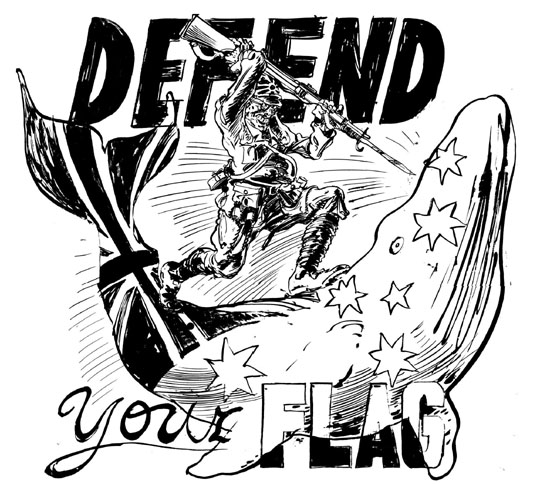Sea Shepherd's Web site describes him as "the first New Zealander to be taken as a prisoner of war from the Southern Ocean to Japan," and there is no doubting Peter Bethune's popularity in this country. His trial in Tokyo earlier this year for interfering with Japan's annual whale hunt dominated New Zealand media, and direct action at sea connects with long-standing cultural currents to do with whales and whaling.
Last month Wellington was covered in posters advertising a benefit gig for Sea Shepherd, headlined by prominent bands. The tiny grouping of nationalist demonstrators who turned out to protest Bethune in Tokyo were a major news item in New Zealand; the campaigns in the Antarctic each whaling season are given daily coverage and commentary. Whaling is a big deal, and an emotionally and culturally central issue.
And yet, for all the intensity and depth of that support, the debate around whaling exists in a strangely ahistorical and decontextualized space, a self-righteousness sealing itself off from examination or self-reflection. The whales in question are often referred to here as "our whales," suggesting a debate as much about ownership and dominion of the seas as any narrower environmental concern. And, for all that these associations may be unwelcome, they point to unsettling traditions in the history of Japanese-Australasian relations.



















With your current subscription plan you can comment on stories. However, before writing your first comment, please create a display name in the Profile section of your subscriber account page.